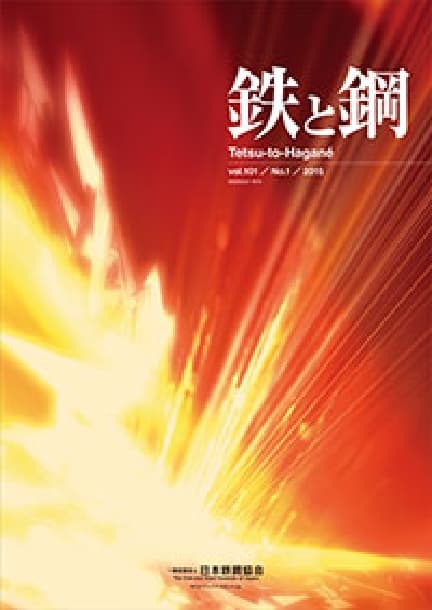Control of Intensity and Distribution of Compression Waves Excited by Alternating Electromagnetic Force
Qiang WANG, Kazuhiko IWAI, Shigeo ASAI
pp. 521-528
Abstract
Compression waves have a lot of useful functions such as refinement of solidified structures and promotion of reaction rate. In order to extend the effective use of these functions, the control of intensity and distribution of compression waves in a liquid metal is indispensable. The intensity and the distribution of compression waves excited by the simultaneous imposition of a static magnetic field and an alternating current were studied. Transmission and reflection coefficients of magneto-acoustic waves at the interface between two media set in a high static magnetic field were calculated as a function of their physical properties. Moreover, the theoretical predictions on the distribution and the intensity of the compression waves in a liquid metal were derived based on electromagnetic field theory and compressible fluid dynamics for the system composed of a liquid metal and a solid. The intensities of the compression waves in a liquid metal were also measured under the different experimental conditions and compared with the theoretical predictions. Based on these results, the effect of operating parameters such as the frequency of an alternating current and the thickness of a solid layer on the distribution and the intensity of the compression waves were discussed.










